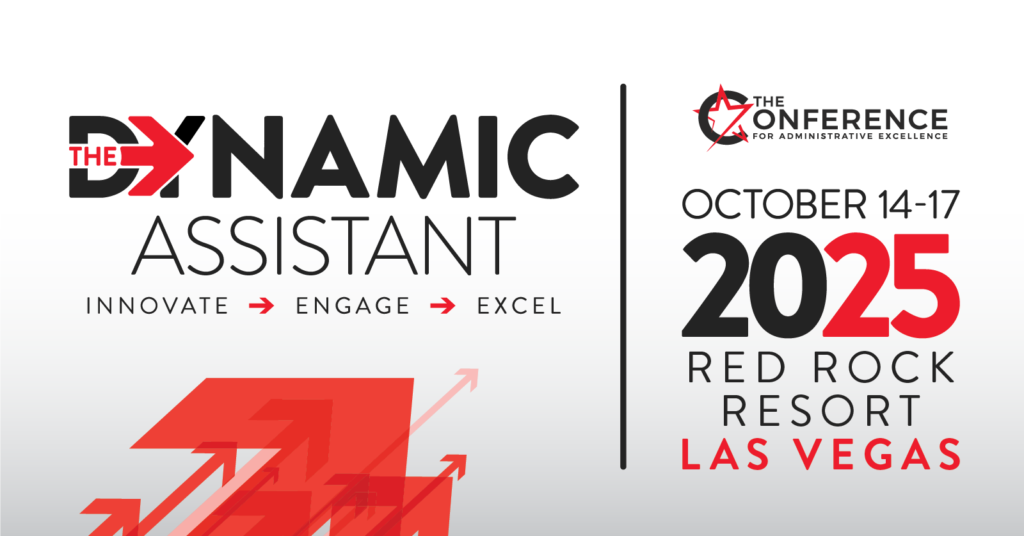Boosting Productivity and Efficiency for Administrative Professionals
For administrative professionals, managing work effectively is a necessity. Your ability to juggle multiple priorities, support executives, and keep the office running smoothly depends on strong time management, productivity techniques, and streamlined processes. But how can you ensure you’re working at your best every day?
This blog dives into actionable strategies for improving productivity and efficiency tailored specifically to administrative and executive assistants. If you’re ready to boost your organizational skills and streamline your workday, keep reading for practical tips and strategies that will make a difference.
Why Efficiency and Organization Matter
At the core of any administrative role lies the need for impeccable organization and structure. Administrative assistants are vital. Their work ensures everything runs smoothly and efficiently. By managing workflows, maintaining calendars, coordinating meetings, and keeping systems organized, they enable their executives, colleagues, and the entire office to function at their best.
Strong organizational skills prevent chaos and improve productivity, streamline communication, and reduce stress for everyone involved. A well-organized administrative assistant is often the key to preventing missed deadlines, overlooked details, or wasted time. Their ability to create and maintain order allows teams and leaders to focus on their priorities, fostering a supportive and thriving work environment.
In essence, organization is the foundation of an assistant’s role and a critical driver of success for the entire office.
If you’re looking for foundational tips on maintaining order in your role, check out Organizational Techniques Every Assistant Should Know.
The skill of efficiency is vital for administrative assistants because it allows them to handle tasks quickly and effectively without compromising quality. It helps them meet tight deadlines, maintain high standards of work, and streamline processes. By being efficient, administrative assistants can focus their energy on what matters most, ensuring consistent results and keeping operations running smoothly.
1. Organize for Success
At Office Dynamics, we believe strong organizational skills are a hallmark of any great administrative professional. This skill ensures tasks are completed efficiently and deadlines are never missed. Staying organized helps in managing day-to-day responsibilities and allows you to handle unexpected challenges with ease and grace.
Here are some practical ways to stay organized, prioritize tasks, and stay one step ahead of the game in a fast-paced work environment:
Declutter Your Workspace Regularly
A clean, organized workspace promotes focus and reduces unnecessary distractions. Take 10 minutes at the end of each day to tidy up and prepare for tomorrow.
Leverage Technology
Utilize tools and apps that simplify your work. For example, project management tools like Trello or Asana help you track progress, while calendar apps help manage deadlines and appointments.
Create a Filing System That Works for You
For both digital files and paper files, it’s important to create systems that ensures timely retrieval of information. Color codes, labels, and folders tailored to your workflow can make all the difference.
2. Mastering Time Management
Effective time management is the backbone of any productive workday. In today’s fast-paced working world, it’s incredibly easy to feel overwhelmed by endless tasks and competing priorities. Without a clear plan, time slips away, leaving you stressed and unproductive. To help you regain control and make the most of your day, here are a few key practices to consider:
Prioritize Tasks Effectively
Prioritizing tasks is key to staying productive and focused. By organizing your to-do list based on what’s most urgent and important, you can tackle high-priority items first while managing or delaying less critical tasks. This approach helps ensure your time and energy are spent where they matter most.
Batch Similar Tasks
Switching between tasks can kill your focus. Instead, group similar tasks, like responding to emails or prepping reports, into dedicated time blocks. This approach minimizes distractions and maximizes concentration.
Use the Power of Time Blocking
Create a realistic schedule by assigning blocks of time to specific activities. For example, you could allocate an hour in the morning to emails and another hour in the afternoon for meeting prep. By structuring your time, you gain clarity about what’s ahead and what you need to accomplish.
For more specific time management advice, check out one of our most popular blogs: Time Management Examples & Advice.
3. Structure Your Day with SMART Goals
Goal-setting is vital for staying focused and productive. Applying the SMART framework (Specific, Measurable, Achievable, Relevant, and Time-bound) allows you to set intentional, realistic goals.
For example, rather than saying, “I want to organize office supplies more efficiently,” you might aim for, “By the end of the quarter, I will reorganize the office supply cabinet and implement a labeling system to reduce retrieval times by 30%.”
SMART goals keep your efforts aligned with long-term objectives, ensuring your work has a measurable impact. Learn more about effective goal-setting with this high-impact read: SMART Goals for Admin Assistants.
4. Build Effective Processes and Routines
Building strong processes and routines is essential for staying organized, managing your time effectively, and maintaining focus throughout the day. They provide structure, help you prioritize tasks, and ensure nothing important slips through the cracks.
By establishing clear routines and systems, you can create a solid foundation for consistent productivity and reduce the stress of feeling overwhelmed. Here are some tips to get you on the right track:
Morning Preparation
Start each day by reviewing your tasks and determining your top three priorities. A quick morning meeting with yourself sets the tone for an organized and productive day.
Standard Operating Procedures (SOPs)
Document your workflows and processes for recurring tasks, like booking travel or onboarding new team members. These SOPs save time and ensure consistency, even in fast-changing environments.
Automate Where Possible
Take advantage of automation tools for repetitive tasks. For instance, use scheduling apps to coordinate meetings or auto-fill templates to draft emails or memos quickly.
Having routines prevents overwhelm and builds rhythm into your workday, creating a sense of structure and stability that helps you stay focused and productive. By establishing consistent habits, you can better prioritize tasks, reduce decision fatigue, and handle unexpected disruptions more smoothly, as you’ll already have a clear foundation to fall back on when things don’t go as planned.
5. Tips for Effective Project Management
For administrative professionals, managing projects efficiently has become an increasingly integral part of the role. Top-tier administrative and executive assistants are stepping up to take on responsibilities that go far beyond “traditional” administrative tasks. More and more, they are serving as project managers—overseeing timelines, coordinating cross-functional teams, and ensuring deliverables are met with precision.
Their ability to multitask, organize, and communicate effectively makes them uniquely suited to handle the complexities of modern project management. This shift highlights just how vital these professionals are to the success and productivity of their organizations. These tips will ensure you deliver results without feeling drained:
Break Projects into Smaller Milestones
Breaking large projects into small, manageable tasks makes them less intimidating and easier to track. Use to-do lists or project-planning software to keep everything neatly organized.
Communicate Clearly
Proactively communicate with stakeholders to set expectations, track progress, and address potential issues. Effective communication keeps everyone aligned and moving toward common goals.
Evaluate and Adjust
Regularly evaluate project progress and make adjustments as needed. This flexibility ensures you stay on track, even when challenges arise or deadlines shift.
6. Building an Efficiency-Focused Mindset
Beyond specific strategies, cultivating the right mindset is essential to achieving true efficiency. Productivity isn’t simply about checking tasks off a to-do list; it’s about shifting your perspective on how you approach your work, prioritize your time, and manage your energy.
By adopting a mindset focused on working smarter rather than harder, you can unlock a new level of effectiveness. This means seeing tasks not as overwhelming hurdles but as opportunities to optimize and streamline. With the right outlook, even time itself can feel like a tool to be mastered, helping you accomplish more with less effort and stress.
Focus on Results, Not Activity
Busy doesn’t always mean effective. Instead of overloading your to-do list, focus on the impact of each task. What measurable result will it achieve?
Identify Your Peak Productivity Hours
Everyone has hours when they feel most energized and focused. Align your toughest tasks with these “power hours” to maximize efficiency.
Take Breaks Strategically
Breaks might seem counterintuitive during busy periods, but they’re essential for maintaining mental clarity and avoiding burnout. Step away from your desk for at least 5–10 minutes every hour to recharge.
7. Overcoming Common Challenges
Even with the best tools, methods, and strategies, no role comes without its challenges. Time management, efficiency, and organizational skills can certainly help, but they can’t eliminate every obstacle.
A boss who doesn’t respect your boundaries, a team struggling to stay on track, last-minute curveballs, or unexpected setbacks – these are struggles that even the most prepared and capable administrative professionals face. It’s a reminder that while we can strive for excellence, navigating hurdles will always be part of the process.
Here are some ways to tackle common challenges faced by administrative professionals:
Managing Interruptions
From impromptu meetings to last-minute requests, interruptions are inevitable. To protect your focus, communicate clear boundaries to your team. For example, mark “do not disturb” time on your shared calendar.
Staying on Top of Shifting Priorities
An admin’s role often involves juggling numerous projects simultaneously. Use a combination of prioritization and time-blocking to adjust when new tasks emerge unexpectedly.
Handling Overwhelm
If your to-do list feels endless, pause to reassess. Delegate where possible and focus first on impactful tasks. Remember, progress matters more than perfection.
Unlock Your Productivity Potential—Join Us in Vegas!
Ready to take your time management and productivity skills to the next level? Conference for Administrative Excellence, we go far beyond tips and tools. We deliver transformation:
- Learn strategic time and project management techniques
- Explore using AI to streamline your daily workload
- Build efficient systems and routines that stick
- Strengthen your focus, organization, and leadership presence
- Walk away with actionable tools, fresh perspective, and a productivity mindset
This experience is designed to help you work smarter, lead stronger, and maximize your impact.
Register now and transform how you manage your time, and your career.
Administrative Assistants: The Productivity Powerhouses
Success as an administrative professional relies heavily on your ability to manage time, implement efficient processes, and maintain a highly organized approach. By mastering productivity techniques and adopting the strategies discussed here, you’ll be equipped to handle challenges while delivering exceptional results.
Are you ready to elevate your efficiency and performance? Explore more resources, tips, and training with Office Dynamics at your fingertips. Begin unlocking your full potential today!


